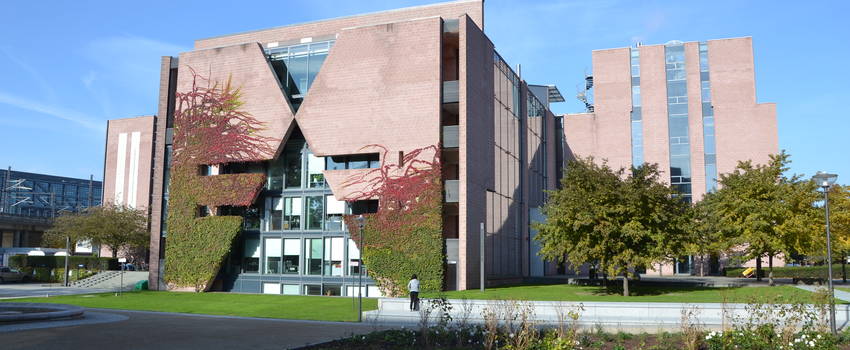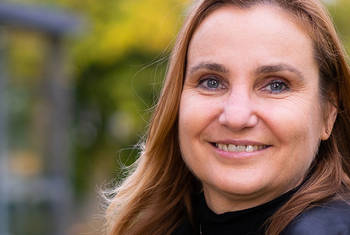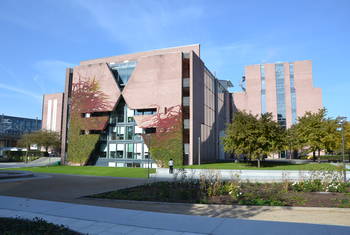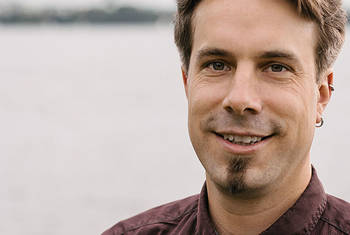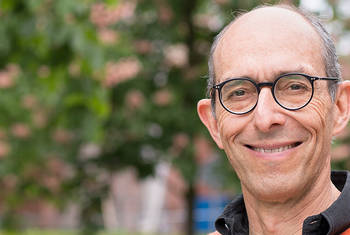Elena Levashina Do Certain Mosquitoes Transmit Malaria More Effectively Than Others?
Elena Levashinais Group Leader of Vector Biology at the Max Planck Institute for Infection Biology. She has previously held the positions of Research Director and Research Assistant at CNRS in Strasbourg. With interests in cellular and molecular biology, Levashina’s research helps us to understand the mechanisms of mosquito malaria transmission. Elected a member of the European Molecular Biology Organisation in 2010, Levashina was awarded the Prix Jaffé of the French Academy of Sciences in 2011
Area of Research
Vector Biology
since 2011
2006
Directeur de Recherche 2 (Research Director)
CNRS UPR 9022 – INSERM U963 Institut de Biologie Moléculaire et Cellulaire (IBMC), Strasbourg, France
2002
Chargée de Recherche 1 (Research Assistant)
CNRS UPR 9022, Institut de Biologie Moléculaire et Cellulaire (IBMC), Strasbourg, France
2001-2002
Staff Scientist
European Molecular Biology Laboratory
1999-2001
Postdoctoral Researcher
European Molecular Biology Laboratory
1995-1998
Postdoctoral Researcher
CNRS UPR 9022, Institut de Biologie Moléculaire et Cellulaire (IBMC), Strasbourg, France
1992-1995
Research Assistant
St. Petersburg State University
Department of Genetics and Breeding
2001
Habilitation à Dirigee des Recherches (HDR)
Title: "Immune responses in Diptera", Université Louis Pasteur, Strasbourg, France
1994
Ph.D. in Genetics
St. Petersburg State University
Title: "Cell selection in vitro for the development of plant stocks resistant to the phytosterol-dependent insects"
1988
Diploma in Plant Genetics
St. Petersburg State University, Russia
- International Journal for Parasitology
- Parasite Immunology
- Open Biology
- eLife
- Member of the Scientific Evaluation Committee of the Pasteur Institute, Paris, France (2012 - 2015)
- Member of the INSERM Scientific Evaluation Committee “Immunology, infectious diseases, haematology and haemostasis” (2007 - 2012)
Prizes
- Prix Jaffé of the French Academy of Sciences (2011)
- Prix de Recherche Inserm (Inserm Prize for Research in Biomedical Sciences) (2008)
- Donation Principale de la Fondation Schlumberger pour l’Education et la Recherche (FSER) pour la Création d’un Laboratoire (2003)
- EMBO Young Investigator Programme Award (2004)
Institute
Max Planck Institute for Infection Biology
The Max Planck Institute for Infection Biology focuses on understanding how microbes cause disease and how hosts respond to this challenge. Its mission is to understand infections by viruses, bacteria, parasites, fungi and worms of two reasons: they present one of the most significant medical burdens on earth and the interaction between microbes and their host are an essential driver of evolution. To find answers to the fundamental questions of infection biology, the MPIIB brings together scientists from various disciplines. Hence the scale of the MPIIB research spans through the atomic, molecular, cellular, tissular, organismal, clinical and finally social level. The Institute is located at the historical Campus of the Charité Clinic in the heart of Berlin.
Map
Unlike other human infectious diseases (e.g. tuberculosis, HIV), malaria is transmitted between humans via mosquitoes. In this video, ELENA LEVASHINA analyzes the mechanisms of how mosquitoes transmit malaria. Combining population studies conducted in the field with mathematical approaches, Levashina finds that mosquitoes with particular genetic characteristics transmit malaria more effectively than others. Though further research is needed on mosquito populations and their movements, the research suggests that interventions aimed at eradicating malaria might more profitably target particular kinds of mosquitoes rather than their populations more generally.
LT Video Publication DOI: https://doi.org/10.21036/LTPUB10972
Mosquito Microevolution Drives Plasmodium Falciparum Dynamics
- Markus Gildenhard, Evans K. Rono, Assetou Diarra, Anne Boissière, Priscila Bascunan, Paola Carrillo-Bustamante, Djeneba Camara, Hanne Krüger, Modibo Mariko, Ramata Mariko, Paul Mireji, Sandrine E. Nsango, Julien Pompon et al
- Nature microbiology
- Published in 2019


